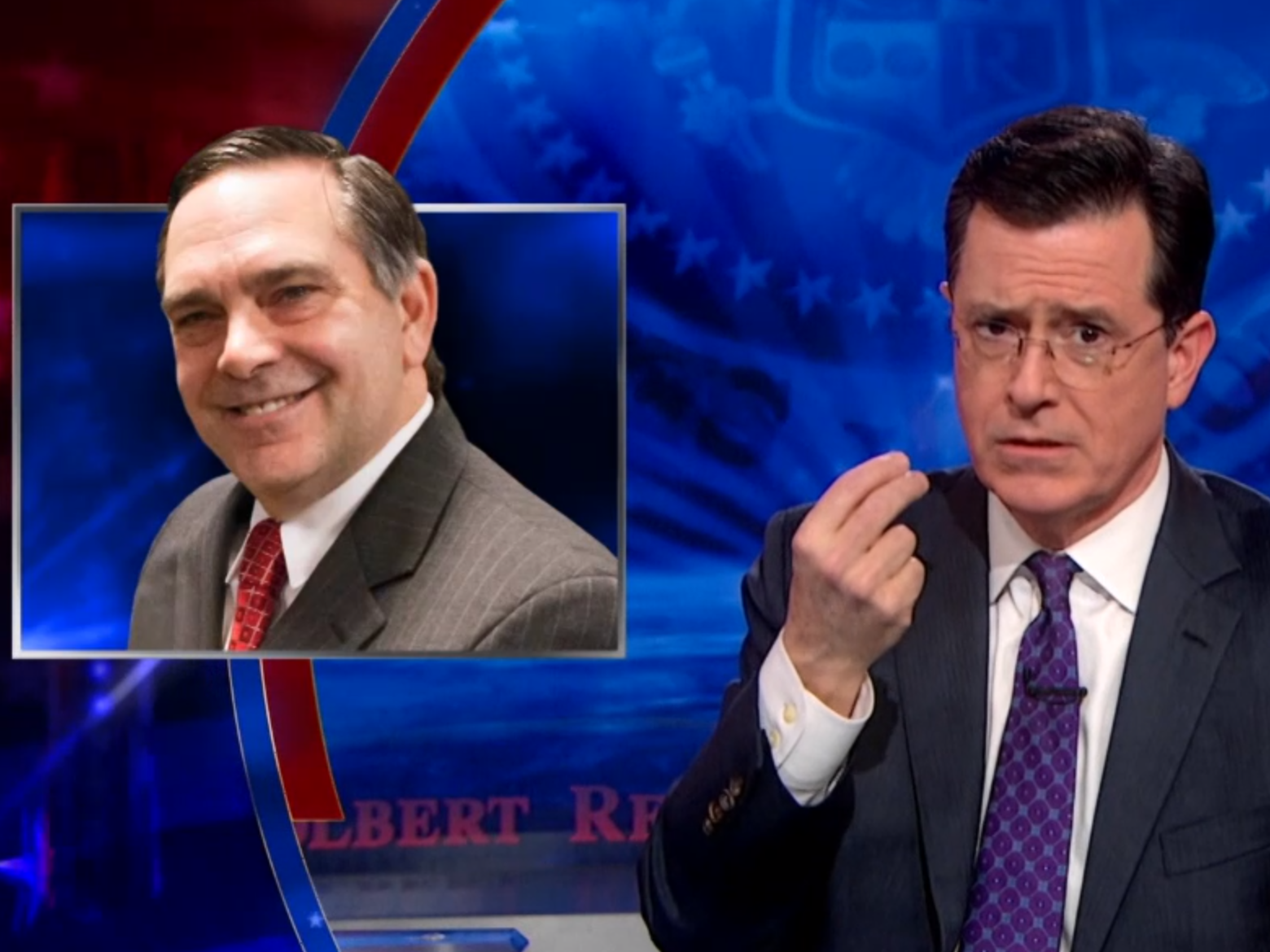Comedian Stephen Colbert took a swing at Breitbart’s own Michael Patrick Leahy on Monday evening, setting him up as the target in a liberal pushback against conservatives who criticized Coca-Cola’s commercial during the Super Bowl. The 60-second spot features children singing “America the Beautiful” in several different languages, set against various scenes of Americana–including, as Leahy pointed out, a pair of gay parents.
Leahy’s point was straightforward: Coca-Cola was presenting a left-wing image of diversity in America, one in which we embrace separate subcultures, accepting differences in language and lifestyle at face value, honoring each as equal to the others. That, Leahy argued, is fundamentally at odds with America’s traditional self-image as a “melting pot,” where newcomers embrace a Western, anglophone culture rooted in Judeo-Christian values.
Colbert pounced on Leahy–who holds degrees from Harvard and Stanford–as a kind of intolerant rube, too dumb to know that E Pluribus Unum isn’t English. The country’s Latin motto means “Speaka-da-English,” Colbert joked, using a xenophobic caricature to malign Leahy as a bigot. The audience applauded happily: the dilemma was easily resolved. Leahy and fellow conservatives were bigots and homophobes. End of story.
Except, of course, that the entire premise of the Coca-Cola ad is absurd. It purports to be a snapshot of what life in America is actually like today. With the exception of the gay couple, almost nothing in the ad bears any resemblance to reality: almost no one sings “America the Beautiful” in any language other than English. There are constant new twists on patriotic motifs–Thanksgivukkah comes to mind–but that isn’t one of them.
As an extra note of mockery, Colbert adds that the composer of the song, Katharine Lee Bates, was a lesbian–“an ardent feminist and lesbian,” according to the New York Times. Colbert–or his writers–are so pleased with this self-gratifying catch that they fail to see that it merely underlines Leahy’s point: Bates embraced and celebrated the dominant national culture in “America the Beautiful,” rather than imposing her own identity.
Bates wrote of “brotherhood,” in the idiom of the day. Feminist though she was, she wrote of “man” and “men.” She celebrated “God” and “pilgrim feet,” honoring the country’s religious foundations. Her use of these terms was not mere devotion to convention: as liberal critics have delighted in pointing out in other contexts, Bates carefully chose provocative lyrics to criticize the inequality that emerged by the turn of the century.
The progressivism that Bates expressed in her song appealed to a sense of unity. By contrast, today’s culture brokers honor division. So convinced are they of their own moral superiority that they give themselves license to tell ethnic jokes that would end a conservative’s career. (Republican Sen. Al D’Amato lost his seat in 1998 after imitating Judge Lance Ito with a Japanese accent and, separately, using the Yiddish expletive “putz.”)
Coca-Cola knew it was sending a left-wing message. It is not the first time Coke has tried: the 1971 “I’d Like to Buy the World a Coke” channeled the peace movement to promote a “world of perfect harmony” (in English). That ad is fondly remembered, and inspired a folk song. But the new ad will not last: even Colbert joked that he hadn’t seen it himself. The original song already exists, and is better. As Coke used to say: it’s the real thing.

COMMENTS
Please let us know if you're having issues with commenting.